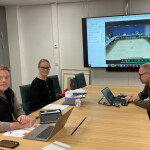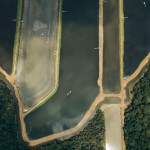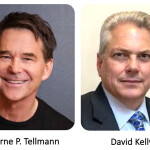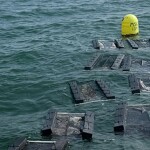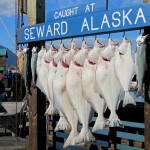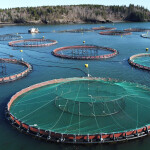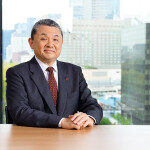First at-sea assessment for Thai Union helps further fisher work and welfare on the water
Sponsored
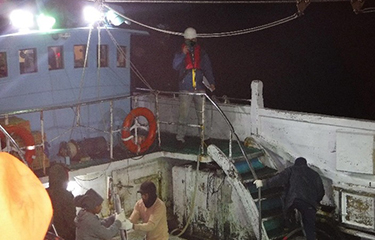
As part of its efforts to bring even more transparency to its supply chains, Thai Union recently arranged for its first consultant to spend time aboard one of the company’s suppliers’ longline carrier vessels to assess working conditions and crew welfare.
The firm contracted MRAG Europe, an independent fisheries and aquatic resourcing company, to carry out the at-sea assessment from 15 April to 18 May on a Malaysian-flagged carrier vessel operating in the Indian Ocean. The vessel is part of a fishery improvement project (FIP) supported by Thai Union.
The aim of the project was to explore if such an assessment could complement existing monitoring as well as in-port inspections, Thai Union said. The firm also wanted to see if the process could add value to assessing conformance with the Vessel Code of Conduct (VCoC), which applies globally to the fishing vessels that supply Thai Union with fish and other seafood.
“MRAG is experienced in sending observers and assessors on board fishing and carrier vessels. The consultant selected to complete the trip had already worked on the same carrier vessel previously. During his 34 days at sea, he was able to assess 19 longline vessels. All fishing vessel owners had signed a memorandum of understanding committing their consent to the inspection taking place, and their cooperation with the consultant. There were some instances where the inspection could not go ahead due to poor weather conditions. In these cases, the consultant used footage from electronic monitoring cameras instead,” Thai Union Assistant Global Director of Maritime and Fisheries Tracy Murai said.
The MRAG consultant who boarded the vessel, which is a part of the Indian Ocean Longline FIP, called the experience “priceless.”
“In my 13 years of field experience, this was the first time that I saw that fishers felt cared for and not alone and have a voice. The at-sea assessment program for labor conditions could be the most effective way to provide this worldwide. It is a highly valuable bridge between the fishers and their human rights that needs to be implemented regularly,” the consultant said.
Embarking on the at-sea assessment project wasn’t a decision Thai Union made lightly, Murai said, considering the numerous risks involved.
“Fishery observers working at sea can be subject to harassment, intimidation, or, in worst cases, death. According to the Association of Professional Observers (APO), there were one or two deaths per year between 2015 and 2020. It was therefore critical that Thai Union worked closely with a highly capable partner who could advise us and ensure the safety of the consultant,” Murai said.
Valuable insights were gleaned from comparing the first-of-its-kind at-sea assessment with in-port audits, which Thai Union has been conducting with its fleet since 2018 to satisfy the company’s VCoC. Ultimately, the firm found that both types of assessments play a role in providing a more holistic view of fishing activity, particularly in areas such as:
- Checking that personal protective equipment (PPE) as well as health and safety equipment and policies were in place and deployed at-sea.
- Confirming that the crew at-sea matched the names on the official crew list.
- Inspecting what the living quarters and conditions at-sea were like for the crew. Thai Union noted that “this was more practical to observe when at-sea – with equipment and belongings loaded – and provided real life insights into living conditions.”
- Checking that the crew were content with conditions, food, and treatment on board.
- Understanding the procedures involved following injuries, including those for repatriation should any serious injuries or illnesses occur.
“Other impacts of the project include that additional checks have been added, providing more information into the existing improvement program with the fleet, developing more robust corrective action plans and continuing engagement with the supplier,” Murai said.
The COVID-19 pandemic made the process more challenging, delaying the project by almost two years and requiring extra protocols to be followed, such as quarantining in a hotel in Mauritius and doing multiple tests before and during the embarkment.
Now that the project is complete, Thai Union looks forward to including the insights gleaned in its Fisher Work and Welfare Program (FWW); sharing the understanding the company gained with the group’s customers, stakeholders, and suppliers; and applying any corrective actions that need to be taken.
“This will not only support the work in this fleet but will help us with all the other long-line fleets that we are working with through the FWW Program. We want to help create protocols around what should be covered in an at-sea assessment versus an in-port audit, not just in our program, but any of the other programs and initiatives that are aiming to drive continuous improvement in the fishing sector. We are also planning to conduct further assessments at-sea in other FIPs and where it is safe to deepen our knowledge about the operations of other fleets that we source from,” Murai said.
“Thai Union is committed to make operations in fishing more transparent – an ambition that can only be achieved by deepening relationships with suppliers, demonstrating accountability and supporting suppliers on their improvement journey,” she added.

